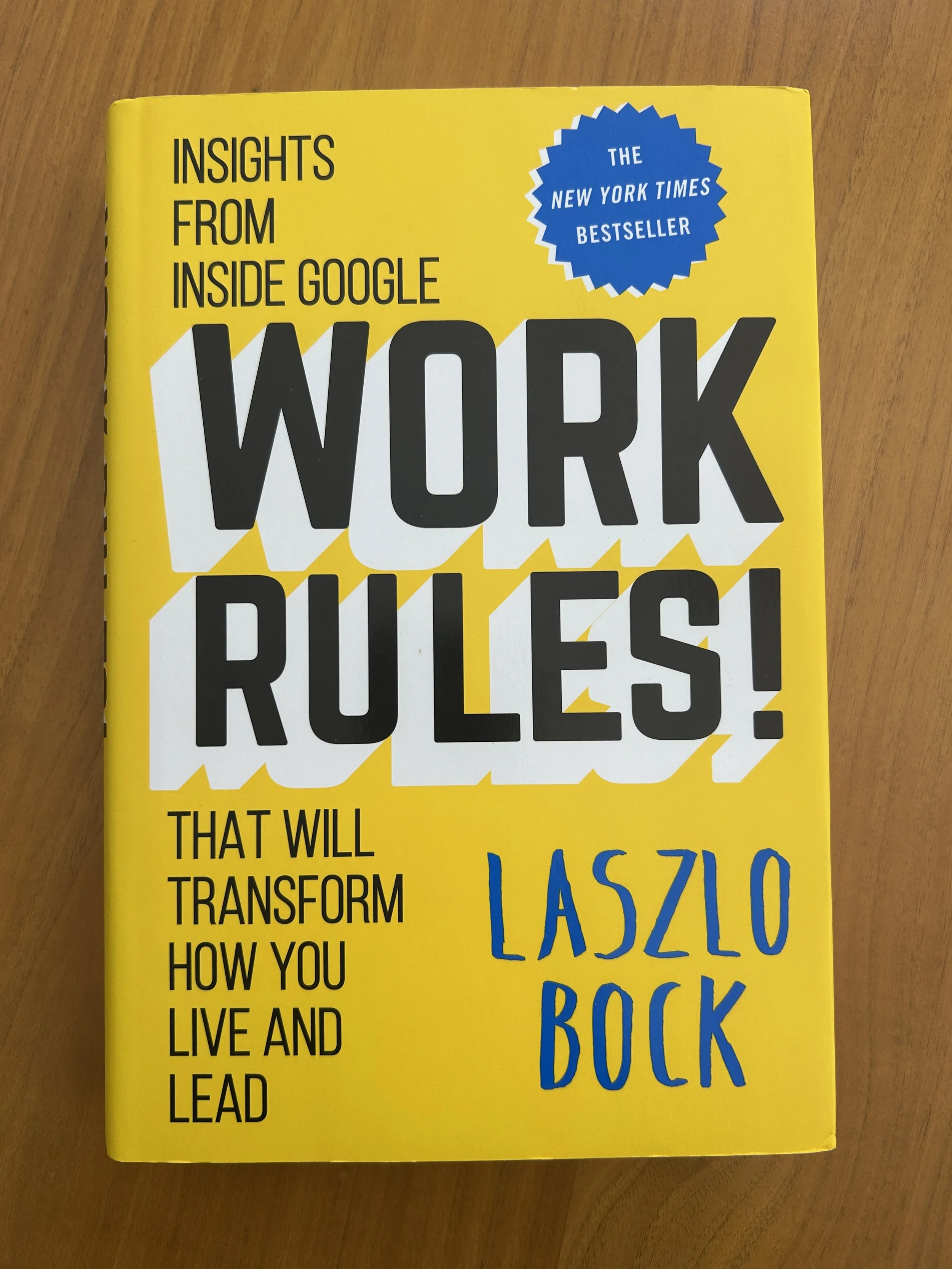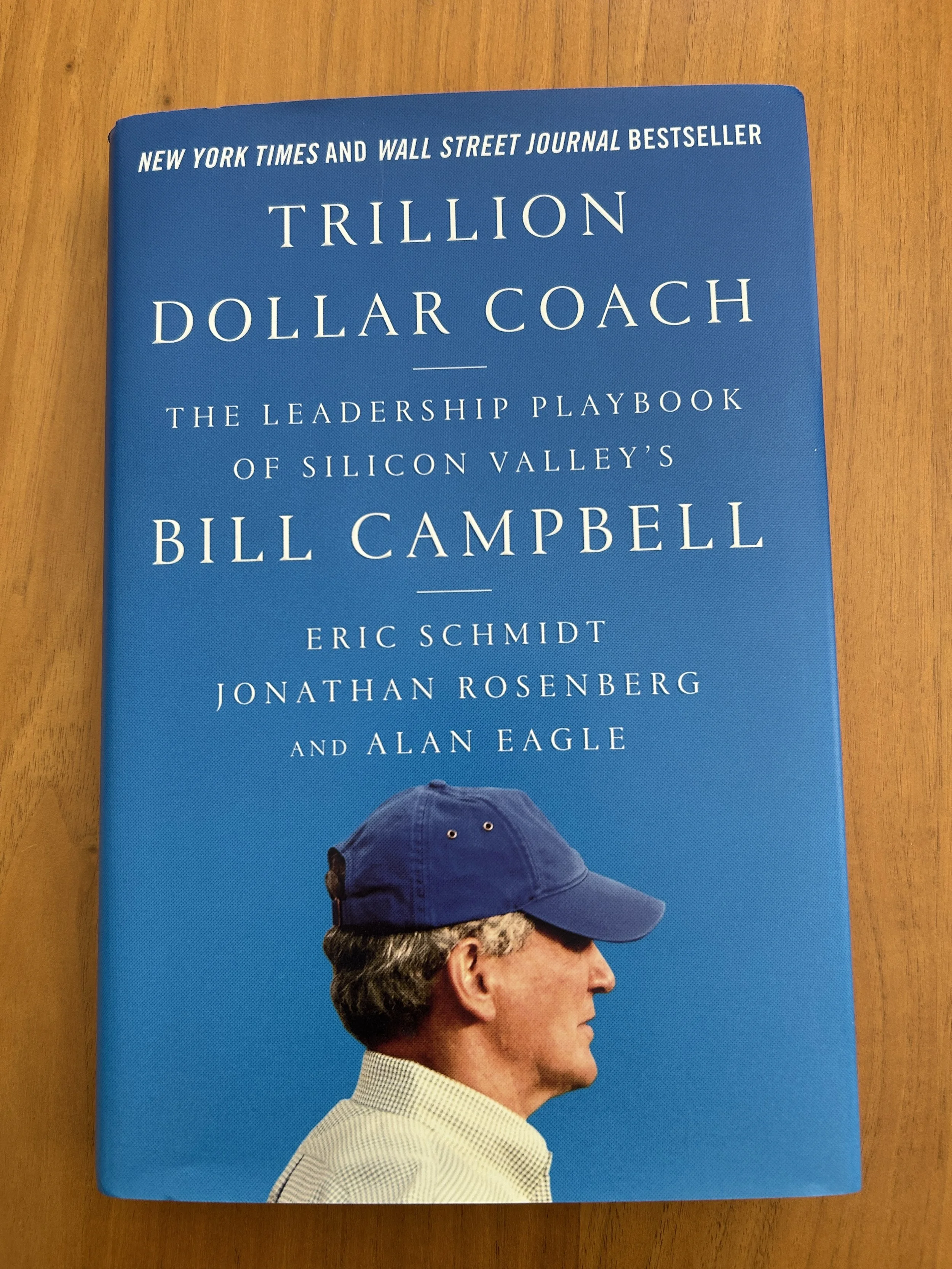The People and Secrets Behind Google’s Success
How did Google become one of the world’s largest and most successful companies? Have you ever wondered what they did differently from other tech companies? We will unpack what Google did behind the scenes that helped propel their success.
We won’t be focusing on the tech side of things. As important as that is, being the best on the technological side doesn’t guarantee success if you aren’t able to develop an organization that is as strong as the tech solution.
You’ll learn two people and two secrets instrumental to Google’s success. Let’s get started.
How Google Invented and Leveraged People Operations
Laslo Bock was Google’s first Head of People Operations, otherwise known as human resources. In his book Work Rules: Insight’s from Inside Google that Will Transform How You Live and Lead, he shares how he helped Google grow from 6,000 to almost 60,000 employees and win Fortune’s “Best Company to Work For” award five times. This is not intended to be a book summary but rather to extract a few key lessons learned from his fifteen years as Google’s head of human resources.
When Laslo joined Google two years after their initial public offering (IPO), he was told that the engineers at Google didn’t like HR, so his title was going to be Vice President of People Operations instead. He wasn’t exactly crazy about the title and the explanation he received is that Google’s engineers associate operations with getting things done and being able to do math so he would be better received as VP of People Operations instead of VP of HR. It’s become more common for HR to be called People Operations now, especially in tech, but it started with Laslo Bock at Google.
Secret #1: Hiring is the Single Most Important People Activity in Your Organization
A key principle that Google’s People Operations ran on is that hiring is the single most important people activity for any organization. The same sentiment regarding the importance of hiring was also shared by Tim Tassapoulos, former president and longtime employee of Chick-fil-A.
- To improve hiring, hire more slowly and only hire people who are better than you.
o Google is 25 times harder to get into than Harvard!
- Do not allow managers to unilaterally decide who they hire!
o Hiring was done by committee and had to be approved by the CEO.
o Managers at Google didn’t have traditional sticks and carrots. They could not unilaterally decide who to hire, fire, or promote. The role of a manager is to serve the team – Eric Schmidt, Google’s executive chairman.
- Google literally hires the smartest people in the world but two important traits that they look for when hiring are humility and conscientiousness.
- Hire objectively. Google uses a combination of structured interviews and assessments which research has shown to better predict successful hires than either approach alone.
o Beware of unstructured interviews! They only explain 14% of an employee’s performance (r2 = 0.14) vs. structured interviews (r2 = 0.26) – Frank Schmidt & John Hunter (1998).
Hiring in HR is like deciding what components or raw material to use in a manufacturing process. If the component selected is of low quality, you can’t make a high-quality product. Having good job descriptions is the equivalent of having good raw material specifications. You may find it strange to compare people operations to manufacturing operations but in some ways we do a better job of taking care of our physical assets than our people.
A good assessment is like having a QC method for testing one of the raw material specifications. Claritas is a certified Harrison Assessments solutions provider so if you need a reliable assessment that can predict fit to a specific role or behavior trait, contact us for more information.
If we stop to think about it, there are many other parallels between Operations and People Operations and lessons learned from Operations that can be applied to People Operations. Claritas helps organizations take People Operations to the next level with the People OPEX® framework to understand how availability, reliability, and quality apply not only to physical assets but also to human capital.
Secret #2: How Google Leveraged Data as Part of Their People Operations
Google is a data company and here are several ways that they used this to their advantage when it came to People Operations.
- They built an unconventional HR team. Only 1/3 of their People Operation hires come from a traditional HR background.
o One third of their team is deeply analytical, with at least a master’s degree in fields such as mathematics or organizational psychology. They provide the team with data techniques that would otherwise not be available to HR and hold the team up to highly objective standards.
o The other 1/3 of the team have a consulting background with a deep understanding of business and how to solve complex problems.
- They conducted research and used data to discover what made their best managers (Project Oxygen) and high performing teams (Project Aristotle) different than the rest. They have also made this public so we can benefit from their findings.
o The data principle behind this is to pay attention and learn from the tails – your best and worst performers.
o Project Aristotle uncovered that psychological safety was the most important factor for building high performing teams.
o Project Oxygen found 8 attributes that were shared by top managers and not present with poor managers.
Here is a list of all 8 Project Oxygen findings:
1. Top managers were able to be good coaches for their team.
2. They did not micromanage but rather empowered their team.
3. They were empathetic, expressing concern for the team members’ personal well-being and success.
4. They were productive and results oriented.
5. They were good communicators.
6. They helped the team with career development.
7. They had a clear vision and strategy for the team.
8. They had important technical skills to advise the team.
How Google Used Coaching to Grow
The most important behavior top managers all exhibited was the ability to coach their team. Surprisingly, technical expertise was the least important of the eight behaviors shared by top managers.
Not only did Google benefit from managers coaching their teams, but they also benefited from an amazing executive coach named Bill Campbell that coached the founders, Sergey Brin and Larry Page.
Bill Campbell was a football coach turned sales manager that became the most influential executive coach in Silicon Valley. He coached leaders at Google, Apple, and Intuit, to name a few. His story is captured in the book “The Trillion Dollar Coach: The Leadership Playbook of Silicon Valley’s Bill Campbell” and co-authored by Eric Schmidt, who served with Google and Alphabet as CEO or executive chairman from 2001 to 2018.
Bill Campbell met with Eric Schmidt almost every other week for fifteen years and attended his weekly staff meeting. Bill coached not only Google’s CEO but his team as well. That was Bill’s approach to coaching. He believed in focusing on the team first instead of the problem. When you have the right team in place, they will figure out the problem.
The authors write, “It’s not that he told us what to do – far from it. If Bill had opinions about product and strategy, he usually kept them to himself. But he made sure the team was communicating, that tensions and disagreements were brought to the surface and discussed, so that when the big decisions were made, everyone was on board, whether they agreed or not. We can say, without a doubt, that Bill Campbell was one of the people most integral to Google’s success. Without him, the company would not be where it is today.”
A good coach does not tell you what to do but rather equips you and the team to figure out the solutions yourself. But only the coachable can be coached. A good coachee is someone open to learning, honest and humble, with a willingness to work hard and persevere.
Bill’s coaching enabled the leadership team at Google to better coach their teams. Coaching is a skill that managers cannot delegate to someone else.
There is much to learn from Google but what matters is what we put into practice.
Partner with Claritas’ leadership coaches to bring the best out in you and your teams. From hiring to team development, or leveraging data as part of your people operations, we are here to support your success.
If you found this useful, please share this article with others or subscribe below for more leadership and team development content.


